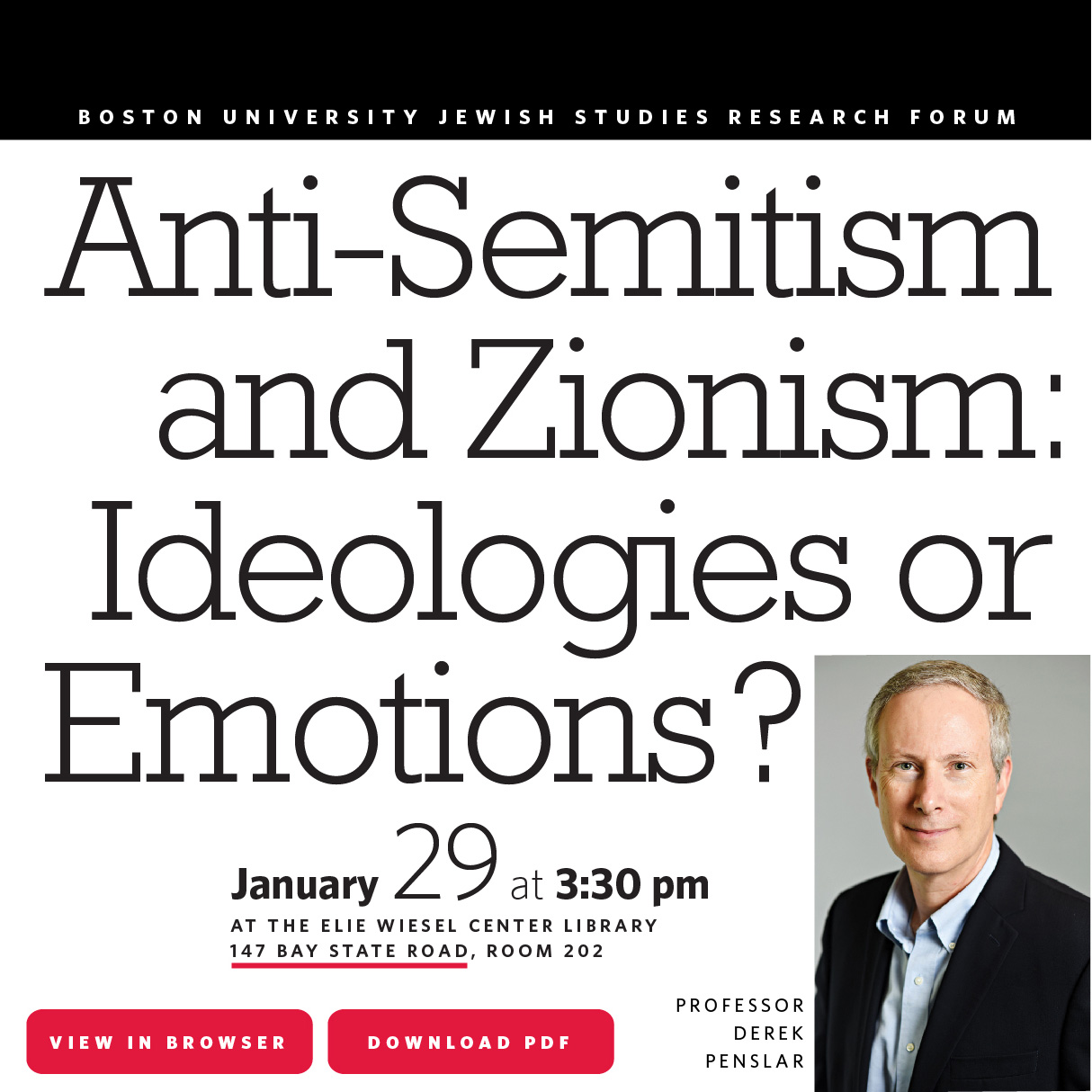Anti-Semitism and Zionism: Ideology or Emotions?
The first and only BUJS Forum event of the Spring 2018 semester hosted Harvard Professor Derek Penslar in the EWCJS library, recorded by WBUR and presented to a full audience. Professor Penslar presented his paper on Affect Theory, how emotions impact the social sciences specifically within international relations, and how this new research lens can impact the narratives of history and current political science. The paper is part of an upcoming book on Zionism as an emotional state, focusing on Zionist leaders like Theodore Hertzel and Chaim Weizmann.

Penslar outlined his particular angle of study, one that has not often been considered in the study of history and political science, to begin his presentation. He argues that while nationalism can be considered an ideology, it is an ideology that uses logical means to justify emotional responses. He applied this research to the specific “emotional diplomacy” of both leaders. Hertzel approached anti-Semitism as an ideology that could be reasoned with, while Weitzmann instead had a more skillful approach to appealing to the emotions of anti-Semites.
Emotions are deeply personal, and so to understand emotional diplomacy Penslar discussed the personal lives of both Hertzel and Weizmann in order to understand why both men turned to Zionism. According to Hertzel’s diaries he felt a deep sense of personal shame, which, Penslar argues, pushed him toward finding his own pride within the Zionist movement. Hertzel’s strategy of non-assimilation won over some anti-Semites, as it achieved their goals of Jews leaving to form a nation state. Anti-Semitism was an ideology that could be appealed to logically in Hertzel’s vision.
Chaim Weizmann approached the political goals Zionism very differently. His international reputation and skill with emotional diplomacy lead to the passage of the Balfour Declaration, securing British support for the establishment of a Jewish state within Palestine rather than in Uganda as was proposed. Weitzmann called this declaration the “Jewish Magna Carta,” directly comparing Zionism to British settlement. He understood nationalism as bound up in emotions and historical narrative, and Penslar argues that those emotions directly influenced a rising anti-Semitic narrative of Jewish supremacy.
Penslar discussed the rise of anti-Semitic conspiracy in the 1920’s, specifically focusing on how anti-Semites posited that Judaism promoted “Bolshevism” and therefore was an enemy to capitalism. Weizmann’s appeal to the emotions of Jewish people to encourage nationalism had the consequence of empowering anti-Semites in Europe and in the United States.
Simon Rabinovitch offered a response to Penslar’s paper, complimenting his understanding of the “matrix of emotions” at play in diplomacy and in ideology. The audience also had an opportunity to ask questions about Penslar’s research.